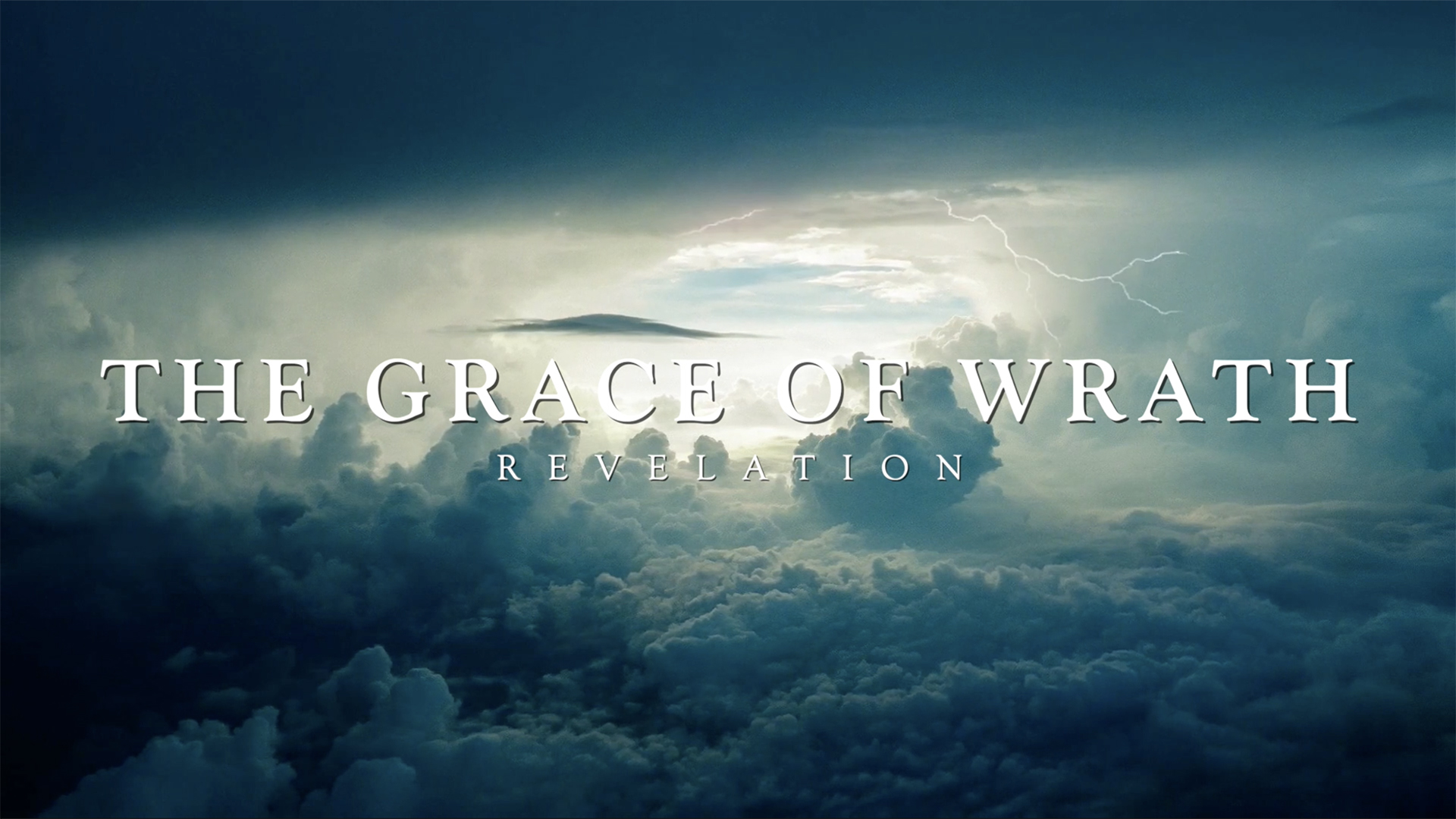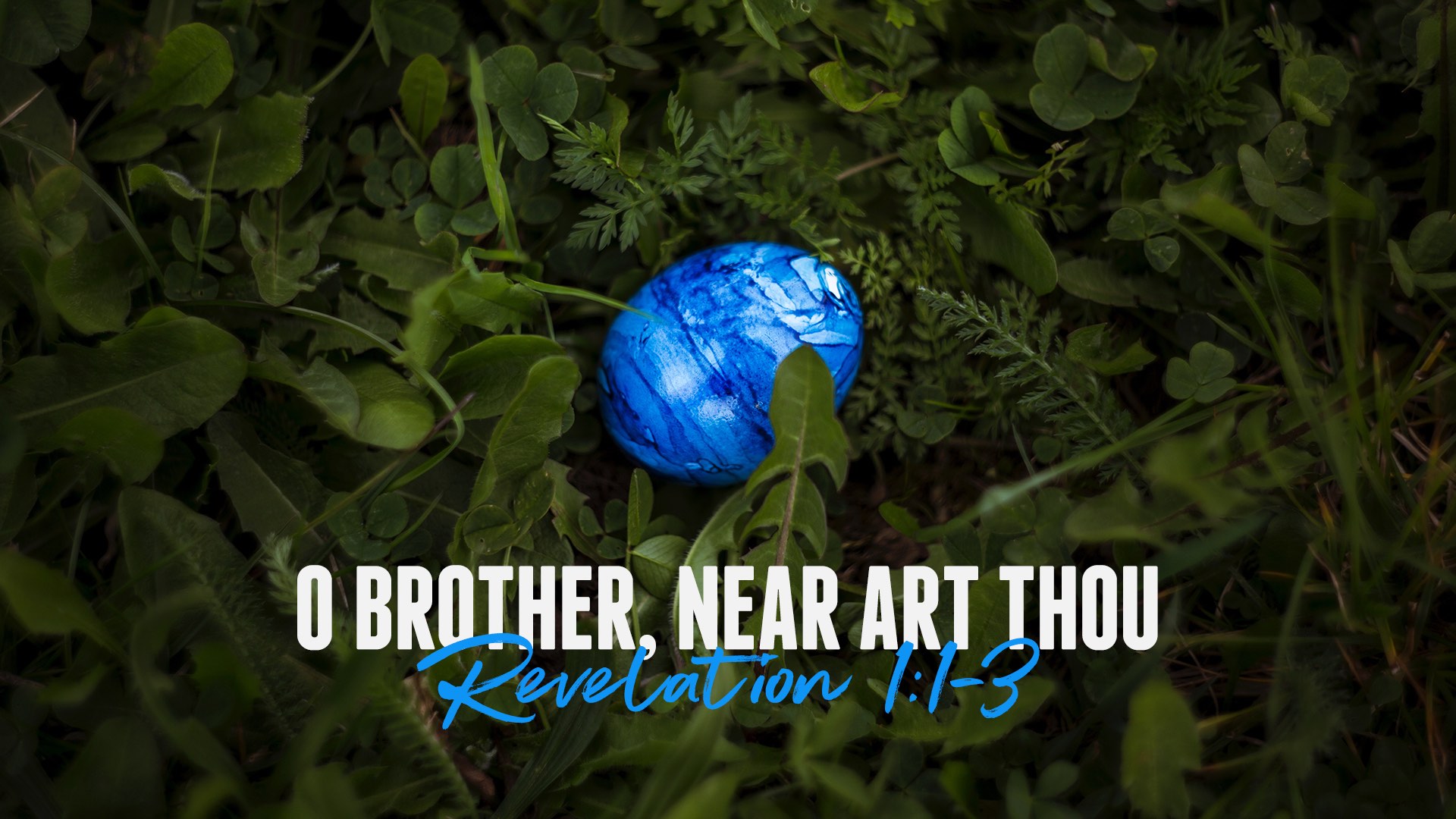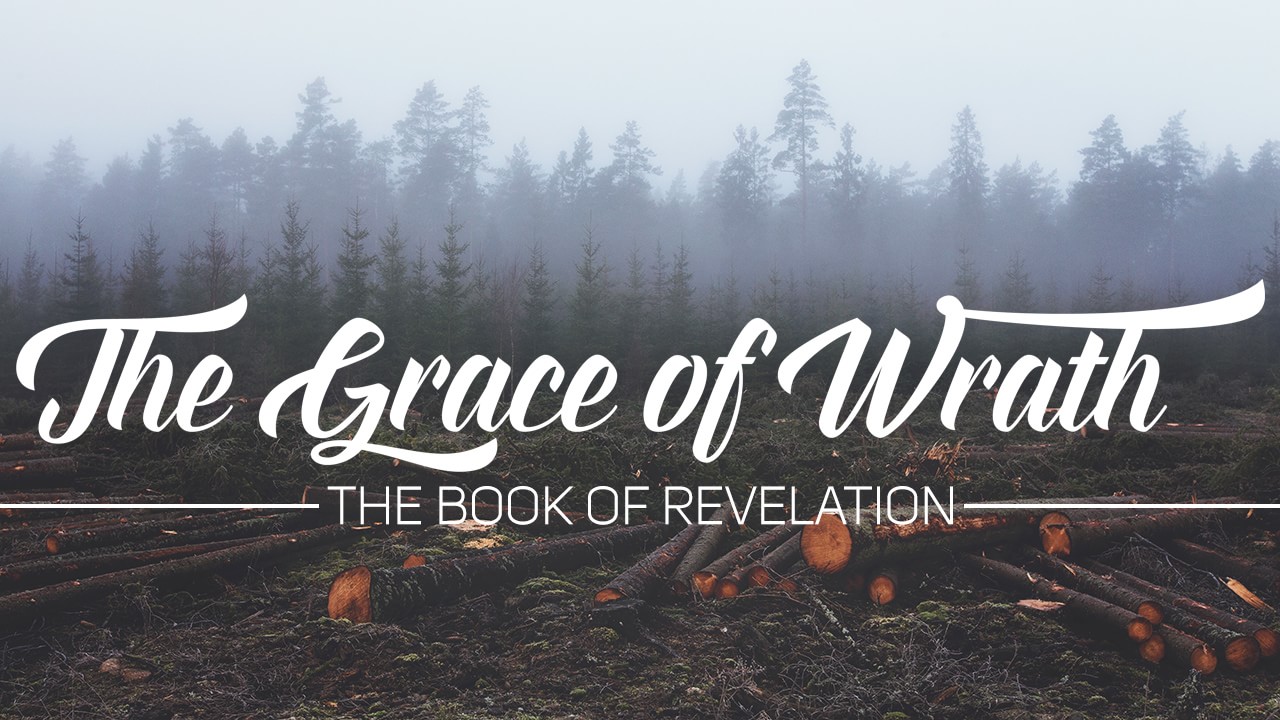
You’ve Left That First Love Feelin’ (Revelation 2:1-7)
It was a 120mi round-trip from San Bernardino, where I lived, to Santa Ana, where Pam lived. I’d leave, every weeknight, just a few minutes after work. Gasoline – leaded, I might add – was $0.50 a gallon. (That was a lot back then. Minimum wage was $2.00hr).
Even though my red 1974 Datsun pick-up got great gas mileage, it was costing me $2.40 per day.
I’d stay later-and-later, getting home so early the next morning that I was sleeping less-and-less.
I ended-up in the ER of (I think) St. Joseph’s Hospital in Orange.
Diagnosis: Exhaustion.
It is a 33’ 6” round-trip from my couch to the refrigerator. Pam will sometimes ask me to get her a Diet Coke. A dread comes over me as I run through the steps involved: Get up… Get her stainless steel mug… Add ice… Grab the can from the fridge… Pop the top… Pour… Wait for the foam to settle… Secure the top of the mug… Deliver the drink… Try not to trip on the cats who think I got up to give them treats.
Not done yet. The can goes into a pail in the garage for recycling. That’s another 20’ each way at least.
It doesn’t really mess with going to bed because I’m mostly asleep on the couch already.
Diagnosis: Selfishness. What happened to that first love?
First love was on Jesus’ mind when He wrote to the believers in Ephesus. “I have this against you, that you have left your first love” (v4). Leaving your first love for Jesus is something that can happen to any church, to any believer.
How do we get back? I’ll organize my thoughts around two points: #1 Works Don’t Require Your First Love, and #2 Repentance Revives Your First Love.
#1 – Works Don’t Require Your First Love (v1-4)
“First love” is difficult to nail down. Commentators disagree on what it is, exactly.
Since Jesus gave no indication, first love must be something the Ephesians would have understood without need of explanation.
It would be like me mentioning Triple H to you. If you’ve been around a while, you know what I’m talking about; it needs no explanation.
Paul had written a letter to the church in Ephesus. In it we discover what first love is. Paul conspicuously depicted Jesus as their Bridegroom, and the church as His bride.
First love was the love of their engagement to Jesus.
Here are a few things to back that assertion.
✎︎ In Ephesians 1:14 Paul wrote that God the Holy Spirit “is the guarantee of our inheritance until the redemption of the purchased possession, to the praise of His glory.” Commenting on this, Warren Wiersbe writes,
The word translated guarantee… means “engagement ring.” In Greece today you would find this word being used that way. Our relationship to God through Jesus is a personal experience of love. He is the Bridegroom and His church is the bride.
✎︎ Listen for the mentions of the heavenly Bridegroom and His earthly bride as Paul wrote about husbands and wives in the fifth chapter of Ephesians:
Eph 5:22 Wives, submit to your own husbands, as to the Lord.
Eph 5:23 For the husband is head of the wife, as also Christ is head of the church; and He is the Savior of the body.
Eph 5:24 Therefore, just as the church is subject to Christ, so let the wives be to their own husbands in everything.
Eph 5:25 Husbands, love your wives, just as Christ also loved the church and gave Himself for her,
Eph 5:26 that He might sanctify and cleanse her with the washing of water by the word,
Eph 5:27 that He might present her to Himself a glorious church, not having spot or wrinkle or any such thing, but that she should be holy and without blemish.
Eph 5:28 So husbands ought to love their own wives as their own bodies; he who loves his wife loves himself.
Eph 5:29 For no one ever hated his own flesh, but nourishes and cherishes it, just as the Lord does the church.
Eph 5:30 For we are members of His body, of His flesh and of His bones.
Eph 5:31 “FOR THIS REASON A MAN SHALL LEAVE HIS FATHER AND MOTHER AND BE JOINED TO HIS WIFE, AND THE TWO SHALL BECOME ONE FLESH.”
Eph 5:32 This is a great mystery, but I speak concerning Christ and the church.
✎︎ The word “Ephesus” can mean desirable or darling. These are terms of romantic love.
✎︎ Paul taught the Ephesians that our time on earth anticipating the coming of Jesus to resurrect and rapture the church is like an engagement that will consummate in a wedding. The Bridegroom could come at any moment – heightening the excitement.
✎︎ Elsewhere in a letter Paul likened himself to a matchmaker, who not only introduced the saints to Jesus, but who also felt it his duty to preserve their purity as the bride of Christ. He wrote, “For I am jealous for you with godly jealousy. For I have betrothed you to one husband, that I may present you as a chaste virgin to Christ” (Second Corinthians 11:2).
Believers in the church in Ephesus would understand first love to be the vibrant, expectant, romantic, sacrificial love of their engagement.
Rev 2:1 “To the angel of the church of Ephesus write, ‘These things says He who holds the seven stars in His right hand, who walks in the midst of the seven golden lampstands:
We established in chapter one that the Revelation scroll John wrote was taken from church-to-church and read by its “angel” – most likely a reference to the pastor.
Jesus greeted each church using an image of Himself from chapter one. We saw Him in chapter one “in the midst of the seven lampstands,” having “in His right hand seven stars.” Jesus told John that, “The seven stars are the angels of the seven churches, and the seven lampstands which you saw are the seven churches” (1:20).
In verse five Jesus will say, “Remember therefore from where you have fallen; repent and do the first works, or else I will come to you quickly and remove your lampstand from its place – unless you repent.”
A “lampstand” was the perfect word for the believers in Ephesus. I believe God always has a perfect word for us, too, in our walk. Many such words, of course.
Being “in His right hand” speaks of intimacy. Jesus is seated at the right hand of God the Father, and we are, spiritually, there, too, being held in His right hand.
A local church is a “lampstand” meant to burn brilliantly in the present darkness of this world.
How were they doing in first century Ephesus?
Rev 2:2 “I know your works, your labor, your patience, and that you cannot bear those who are evil. And you have tested those who say they are apostles and are not, and have found them liars;
The Ephesian believers had “works” in over-abundance. Their works were characterized by “labor” and “patience:”
“Labor” describes strenuous, exhausting work. Not in a negative way – but in that way you feel when, although exhausted, it was totally worth it, because you enjoyed it.
They had “patience” as they worked. Although they faced fierce local opposition from nonbelievers, they pressed on for the Lord.
Jesus noted that “you cannot bear those who are evil.” In one of the most emotional moments of the Book of Acts, Paul met with the elders from Ephesus to warn them that false teachers would try to infiltrate the church, to destroy it with their false teachings. The Ephesians took this seriously, and would not tolerate these false “apostles,” calling them “liars.”
Rev 2:3 and you have persevered and have patience, and have labored for My name’s sake and have not become weary.
Their tribulation was producing “patience.”
The more they “persevered” against opposition, the more trouble they attracted, and the more patient they became. They were not becoming “weary” in well-doing.
They must have been feeling pretty good about their evaluation.
Then it happened.
Rev 2:4 Nevertheless I have this against you, that you have left your first love.
Did they gasp? Did someone say, “What?” Did some begin to weep?
Did the pastor reading the letter out loud pause?
Were there those who disagreed? Or who immediately thought of others that were guilty of this – but certainly not them?
Was there clamor, or calm?
They couldn’t point to their works as evidence that they loved Jesus. He had acknowledged their works; but it turns out works don’t require love.
Paul wrote, “And though I bestow all my goods to feed the poor, and though I give my body to be burned, but have not love, it profits me nothing” (First Corinthians 13:3).
The Ephesians had a love in 62AD (when Paul wrote to them) that they had left by 95AD (when Jesus wrote to them).
This is where it gets hard. What we are talking about has to do with motives, and our motives can be really difficult for us to discern.
I can “bestow all my goods to feed the poor” on account of my love for Jesus, or I can do it as a work that has nothing to do with love for Him.
Fortunately for us, “The word of God is living and powerful, and sharper than any two-edged sword, piercing even to the division of soul and spirit, and of joints and marrow, and is a discerner of the thoughts and intents of the heart” (Hebrews 4:12).
If you do a simple search in Strong’s Concordance, you’ll see that the “two-edged sword” is a dirk.
Do a Google search for “dirk,” and once you get past Dirk Nowitzki, you’ll discover it is a long bladed thrusting dagger. Historically, it was a personal weapon of officers engaged in naval hand-to-hand combat.
It calls to mind the phrase, “Cut to the heart.” I happened to come across this factoid: The first use, in English, of the expression “cut to the heart” traces back to the Bible – specifically the second chapter of the Book of Acts. It was the Day of Pentecost, and the apostle Peter was sharing the Gospel with the crowds at the Temple.
Hearing about Jesus, we read, “Now when they heard this, they were cut to the heart, and said to Peter and the rest of the apostles, “Men and brethren, what shall we do?” (v37).
They repented. They believed and were saved.
If you’ve left your first love, you need to be cut to the heart. It isn’t a surgical cut. It’s an instantaneous spiritual thrust into your heart that ignites repentance. It may sound violent, but it is an act of love.
#2 – Repentance Revives Your First Love (v5-7)
We’ve just come through the Christmas season.
Chances are, you watched It’s a Wonderful Life, and one or more versions of A Christmas Carol. They have in common that the protagonist in each was shown something that completely, immediately, changed them:
George Bailey was thinking about ending it all until he was shown what his town would have looked like if it hadn’t been for all his good deeds over the years.
Ebenezer Scrooge was shown his past, present, and future to the effect that he became a generous philanthropist.
When Jesus discerns the thoughts and intents of your heart, and shows you them, you will completely, immediately change.
Put simply: The very realization that you have left your first love ignites your repentance.
Rev 2:5 Remember therefore from where you have fallen; repent and do the first works, or else I will come to you quickly and remove your lampstand from its place – unless you repent.
If you were saved later in life, you can easily relate to “first works.” You received Jesus as your Savior, and you experienced the forgiveness of your sins. God the Holy Spirit came to indwell you, and you were transformed into a new creation in Christ. You knew love for the very first time.
Your first works weren’t “works” at all, not in the traditional sense.
Your first works were simply responses to the love of Jesus Christ.
When Jesus said, “Remember therefore from where you have fallen; repent and do the first works,” He was saying that as soon as you really realize that you’ve left your first love, you will repent and return to love as your motive.
“Or else I will come to you quickly and remove your lampstand from its place – unless you repent.” The churches on the earth are lampstands.
They are the only spiritual light in the darkness of a realm whose ruler is “the god of this world,” (Second Corinthians 4:4) whose allies include “the rulers of the darkness of this age” (Ephesians 6:12).
Jesus’ gift of God the Holy Spirit is our source of oil for our lampstand; and Jesus is the one who trims the wick – keeping us burning brightly.
Unless we leave our first love.
Why would Jesus remove you from a place of witness if you leave your first love?
Because your witness is not an accurate portrayal of the love relationship He desires from you as His darling, espoused bride.
In describing a local church we might say it has a certain personality, based on who or what it emphasizes. The personality of the first century church in Ephesus was work, or you might say, work ethic. If they were on the internet, they’d have a long drop-down menu of ministries you could click on. It wasn’t a place you could be a part of without being involved in ministry. Happily, I might add.
But the work was not motivated by first love for Jesus and therefore it gave the wrong impression.
A church can go on for a long time, doing works that are loveless. “Quickly” is the Greek word from which we get tachometer. It didn’t mean soon; it meant that once He decided to remove their lampstand it would happen suddenly.
Rev 2:6 But this you have, that you hate the deeds of the Nicolaitans, which I also hate.
A mystery surrounds the identity of the Nicolaitans. There are three major suggestions:
First, an early church figure, Irenaeus, said they were followers of Nicolaus of Antioch, one of the seven original deacons (Acts 6:5). He is said to have apostatized.
Second, it is suggested that the sect began through a misinterpretation of a statement by Nicolaus, based upon which they lived a life which indulged in the sinful pleasures of the flesh.
Third, there are those who point out that the word Nicolaitan comes from the Greek compound word meaning conqueror of the people. They say they were forerunners of the clerical hierarchy that puts distance between God and regular lay people.
Nicolaitans are mentioned again in the letter to the church at Pergamos in connection with the Old Testament character Balaam. We don’t know anything more about Nicolaitans; not for sure.
Jesus’ use of “hate” shouldn’t upset you. It is in keeping with the romantic tone of this letter.
Lovers grow together as one. They learn to love what each other loves, and to hate what each other hates.
Rev 2:7 “He who has an ear, let him hear what the Spirit says to the churches. To him who overcomes I will give to eat from the tree of life, which is in the midst of the Paradise of God.”
Everyone is invited to “hear what the Spirit says to the churches.” Every Christian in every church throughout the Church Age.
“Him who overcomes” is a phrase found in each of the seven letters. It seems to describe true believers within the larger body of each church, composed of both true and professing Christians. One commentary put it this way:
Almost all the references to overcoming mention a promise for all believers, promises that accompany salvation. It would seem strange to think of only some believers eating of the tree of life, or not being hurt by the second death, or not being clothed in white garments.
John himself wrote, “For whatever is born of God overcomes the world. And this is the victory that has overcome the world – our faith. Who is he who overcomes the world, but he who believes that Jesus is the Son of God? (First John 5:4-5).
Do you believe that Jesus is the son of God? Have you been born again? Then you are an overcomer.
At the very end of the Revelation, once we are in the new creation, all believers will partake of the tree of life in the midst of the Paradise of God. “On either side of the river, was the tree of life, which bore twelve fruits, each tree yielding its fruit every month” (22:2).
I don’t know if you’re ready for this, but I’m pretty sure we will be fruitarians in eternity. There will be no more death – and that includes animals and plants. It was, after all, our original diet.
Every source I sought out suggests things you can, should, or must do to repent and return to your first love. Here is just a sampling:
Get your priorities back in order.
Talk about Jesus constantly.
Do the first works of worship, prayer, Bible study, giving, fasting, and serving others.
Cut-out distractions to make more time to spend with Jesus.
Here’s my problem: When I got saved, these things just happened, through grace, on account of Jesus’ love for me. I don’t think it works the other way.
I don’t think that, for example, reorganizing my priorities is going to overwhelm me with first love.
First love is a lot about re-realizing Jesus’ love for me.
Realizing His love for me is what ignited the flame in my heart for Him. I did nothing; He did everything. As John would point out elsewhere, “We love Him because He first loved us” (First John 4:19).
When I re-realize that Jesus first loved me… How can I not keep falling in love with Him over and over again?
I was cut to the heart when I was saved. I’ll need to experience another dirk-daggering to return to my first love.
“O, how He loves you & me.”



